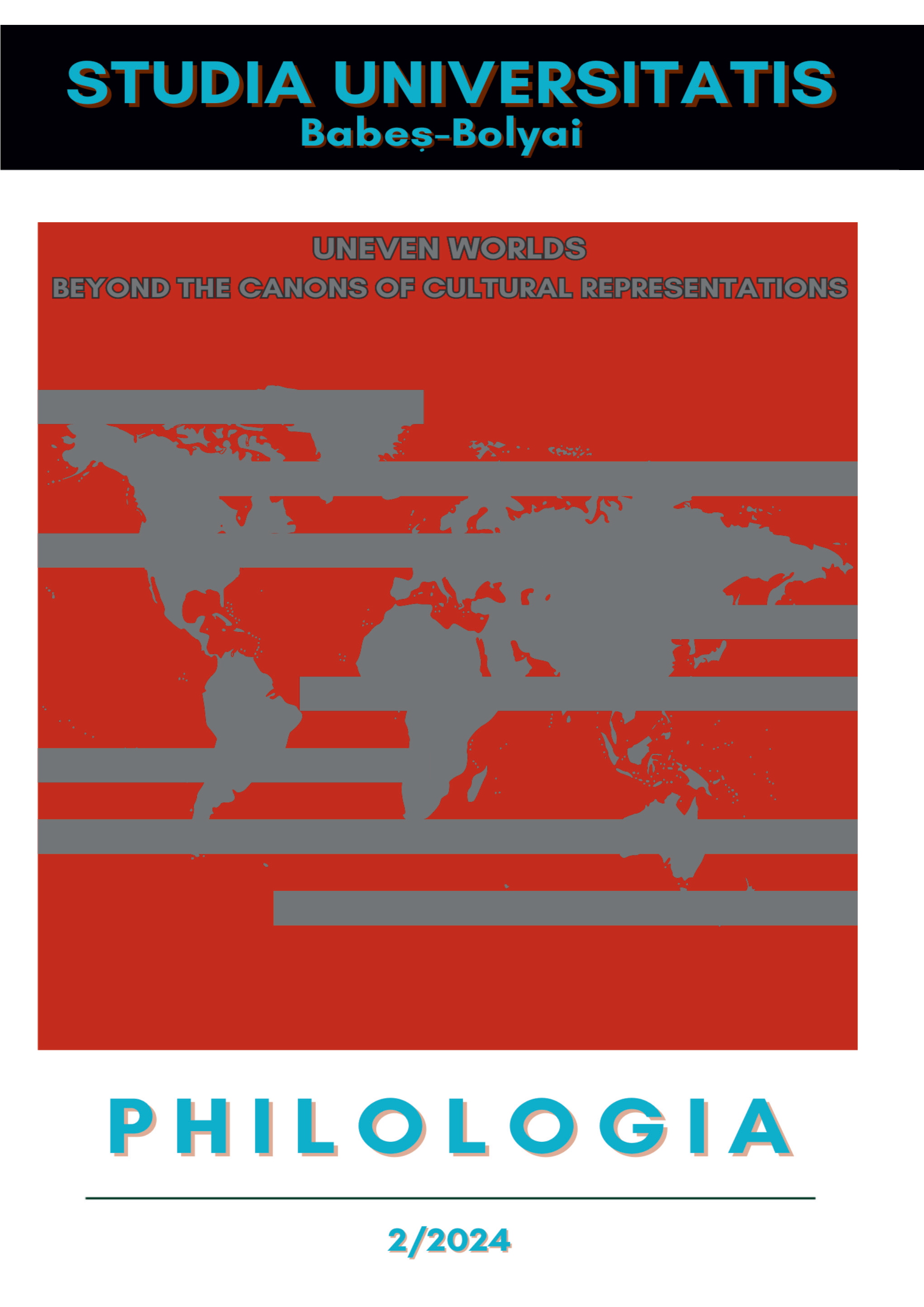PANDEMIC BIOPOLITICS IN ROMANIAN LITERATURE
DOI:
https://doi.org/10.24193/subbphilo.2024.2.09Keywords:
COVID-19 pandemic, isolation, collective trauma, posthumanism, contagion, medical humanities, peripheral literaturesAbstract
Pandemic Biopolitics in Romanian Literature. The biopolitics of the COVID pandemic years has had a powerful impact on all areas of activity, including literature and the arts. Contagion and isolation quickly became the governing terms of social interaction, and writers promptly echoed their impact in works that tried to capture the spirit of the time as it was unfolding. Romanian writers were particularly prompt in responding to the challenges of this unprecedented crisis in modern decades, therefore the first pandemic writings were published in the later months of 2020. Florina Ilis’ Pandemia veselă și tristă (The Happy and Sad Pandemic, Polirom, 2020), Teodor Hossu-Longin’s Măștile din spatele măștii (The Masks behind the Mask, Hyperliteratura, 2022) and collective volumes such as Izolare (Isolation, Nemira 2020) and Jurnal din vremea pandemiei. Proză de grup (Journal from the Times of the Pandemic, Brumar, 2021), edited by Marius Cosmeanu, are just the most visible examples that could be explored in this context. Drawing from theories concerning posthumanism, medical humanities, ethics and contagion, this paper aims to explore the manner in which the pandemic segment of Romanian literature could be integrated into a global literary framework that highlights a diversity of genres and a plurality of voices galvanizing the relationship between the massive effects of the pandemic and narrative art. My paper aims at mapping an emerging literary dialect that gives shape, voice and coherence to a collective experience that has left an indelible imprint on the present and will significantly shape the cultural climate of the near future.
Biopolitica pandemică în literatura română. Biopolitica anilor pandemiei COVID a avut un impact puternic asupra tuturor domeniilor de activitate, inclusiv asupra literaturii și artelor. Contaminarea și izolarea au devenit rapid termenii esențiali ai interacțiunii sociale, iar scriitorii au reflectat imediat impactul acestora în lucrări care au încercat să surprindă spiritul vremii pe măsură ce acesta prindea contur. Scriitorii români au fost în mod special prompți în a răspunde provocărilor acestei crize fără precedent în deceniile moderne, astfel încât primele scrieri pandemice au fost publicate în ultimele luni ale anului 2020. Pandemia veselă și tristă a Florinei Ilis (Polirom, 2020), Măștile din spatele măștii de Teodor Hossu-Longin (Hyperliteratura, 2022) și volume colective precum Izolare (Nemira, 2020) și Jurnal din vremea pandemiei. Proză de grup (Brumar, 2021), editate de Marius Cosmeanu, sunt doar cele mai vizibile exemple care ar putea fi explorate în acest context. Bazându-se pe teorii despre postumanism, științe umaniste medicale, etică și contagiune, această lucrare își propune să exploreze modul în care segmentul pandemic al literaturii românești ar putea fi integrat într-un cadru literar global ce evidențiază o diversitate de genuri și o pluralitate de voci dinamizând relația dintre efectele cele mai de ecou ale pandemiei și arta narativă. Lucrarea își propune să cartografieze un dialect literar emergent care dă formă, voce și coerență unei experiențe colective ce a lăsat o amprentă de neșters asupra prezentului și va modela semnificativ climatul cultural al viitorului apropiat.
Cuvinte-cheie: Pandemia COVID-19, izolare, traumă colectivă, postumanism, contagiune, științe umaniste medicale, literaturi periferice
Article history: Received 15 February 2024; Revised 16 March 2024; Accepted 20 March 2024; Available online 25 June 2024; Available print 30 June 2024.
References
World Health Organization, International Health Regulations, https://www.who.int/health-topics/international-health-regulations#tab=tab_1, accessed January 31, 2024.
Ağın, Başak, Horzum, Şafak (eds). 2023. Posthuman Pathogenesis. Contagion in Literature, Arts, and Media, Routledge.
Atwood, Margeret, Preston Douglas. 2024. Fourteen Days. A Collaborative Novel, Harper Collins.
Cobuz, Victor. 2020. “Ficțiunile pandemiei”. In Observator cultural, no, 1043. https://www.observatorcultural.ro/articol/fict%CC%A6iunile-pandemiei/; accessed 20 January, 2024.
Colțan, Alexandru. 2020. “Boala ca un sabotor”. In Orizont, no.11, p. 10.
Crăciun, Petru (ed.). 2020. coronaJURNAL. Gânduri din izolare (coronaJOURNAL. Thoughts from Isolation). Zorio publishing.
Davis, Lennard J. 2023. “In the Time of Pandemic, the Deep Structure of Biopower Is Laid Bare”. English Language Notes, 61 (1): 17–21.
Foucault, Michel, 2008. The History of Sexuality. Vol.1. The Will to Knowledge. Penguin.
Ilis, Florina. 2020. Pandemia veselă și tristă. Polirom.
Latour, Bruno. 2021. “Is This a Dress Rehearsal?”, Critical Inquiry, vol. 47, no.52, Winter 2. The University of Chicago Press, www.journals.uchicago.edu/doi/full/10.1086/711428.
Lorenzini, Daniele. 2020. Biopolitics in the Time of Coronavirus. In Critical Inquiry, Duke University Press. Available online: https://www.journals.uchicago.edu/doi/full/10.1086/711432.
Newman, Saul, Topuzovski, Tihomir (eds.). 2021. The Posthuman Pandemic, Bloomsbury Academic.
Outka Elizabeth. 2020. Viral Modernism. The Influenza Pandemic and Interwar Literature. Columbia University Press, New York.
Wald, Priscilla. 2008. Contagious. Cultures, Carriers, and the utbreak Narrative. Durham and London:Duke University Press.
Woolf, Virginia. 2002. On Being Ill. Paris Press.
Downloads
Published
How to Cite
Issue
Section
License
Copyright (c) 2024 Studia Universitatis Babeș-Bolyai Philologia

This work is licensed under a Creative Commons Attribution-NonCommercial-NoDerivatives 4.0 International License.





 ©Studia Universitatis Babeş-Bolyai Philologia. Published by Babeș-Bolyai University.
©Studia Universitatis Babeş-Bolyai Philologia. Published by Babeș-Bolyai University.